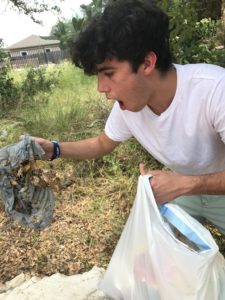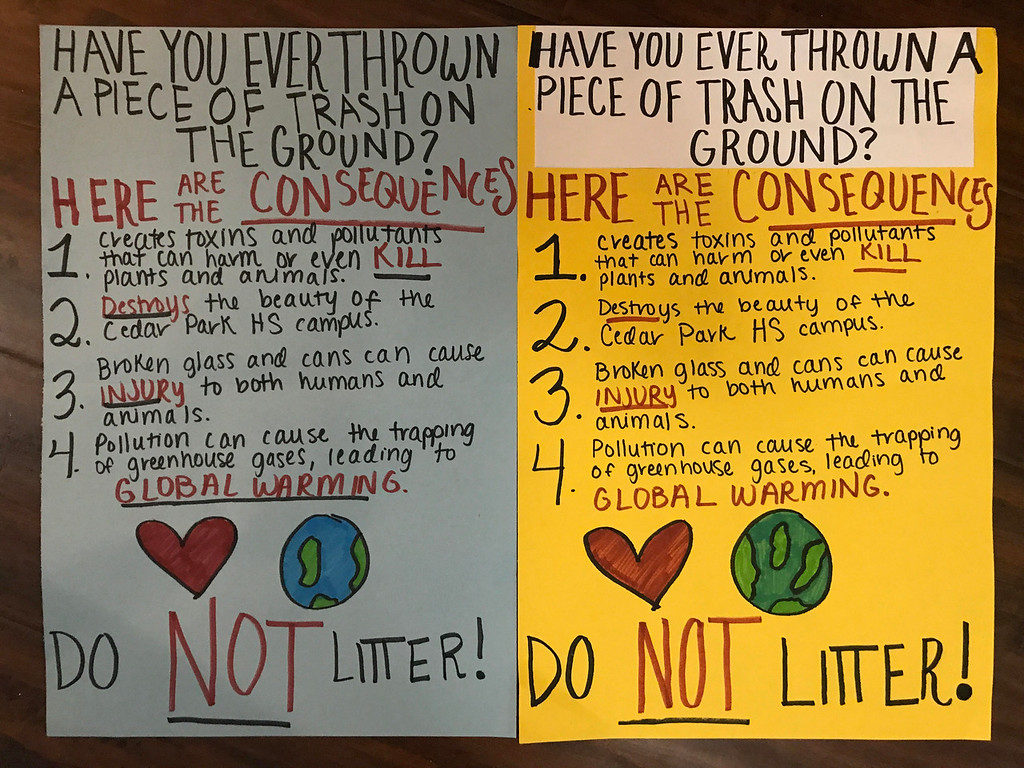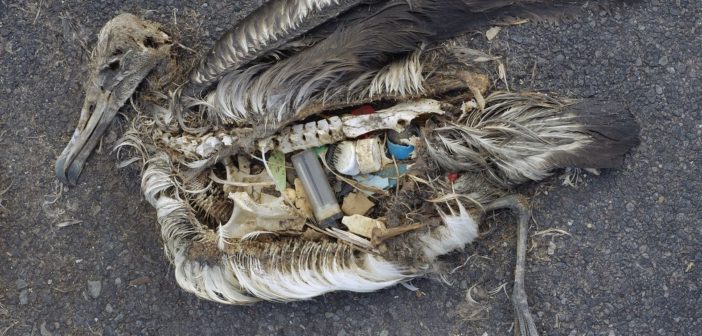Plastic waste is a serious issue. Every year, a profuse amount of plastic garbage, like straws, wrappers, and bags, are thrown away. In fact, the amount of plastic that ends up in landfills each year could circle the earth four times. Shockingly, a lot of this waste piles up in the Great Pacific Garbage Patch in the North Pacific Ocean. Of all the garbage in the patch, “it is estimated that 92 percent of the mass is large plastic objects.”
 Think about your daily plastic use.
Think about your daily plastic use.
How often do you encounter over-packaging or unnecessary use of plastic? Many food items are wrapped in plastic or come in a plastic container, and plastic utensils (often wrapped in more plastic) are typically provided with these foods as well. This is just one example of a commonly overlooked abuse of plastic and an unsustainable way of life that has detrimental effects on our planet. But this Earth Day, it’s not too late to change our behaviors and start reversing this problem.
Earth Day 2018 will focus on fundamentally changing human attitude and behavior about plastics and catalyzing a significant reduction in plastic pollution.” – Earth Day Network
Large corporations are stepping up too. In a move to become more sustainable, McDonald’s in the UK will begin to remove plastic straws in 1,300 of their restaurants. Currently, the fast food chain is working on phasing out plastic straws by placing the dispensers behind the counter and only giving them out to customers if requested. Soon, newly tested biodegradable paper straws will be available to the public in all McDonald’s locations in the U.K. They will continue to improve their container manufacturing to utilize renewable or recyclable materials instead of plastic in the near future. Many other fast food chains and companies across sectors are making an effort to reduce plastic waste as well or repurpose it, including banning plastic utensils, straws, and packaging internally and reducing plastic packaging in their products and supply chain.
What you can do:
1. Start small, with JGI’s Roots & Shoots 1-click campaigns:
2. Design your own service project. Launch a campaign that you can implement in your office, school, or home to teach others how to properly dispose of waste in the correct bins.
A Roots & Shoots group called the EarthSavers team works to educate students and teachers at their school about what can be recycled. For Earth Month, they will actively implement their ideas by holding a ‘Trash Con’ event at their school. After the event, they will continue to make announcements about recycling over the school intercom and create informational posters to hang in classrooms!

3. Make a pledge to cut down on your plastic use. Want to stop wasting plastic? Commit to using straws made out of materials other than plastic. Get out in your community and encourage others to reduce their plastic usage as well.
4. Spread awareness. Post on social media about the actions you’re taking and tag @rootsandshoots @janegoodallinst and #endplasticpollution ! You can also start up a conversation in class or with your friends about ways to take action.
5. Donate to the Jane Goodall Institute. Donate to JGI to support the Roots & Shoots program, enabling young people in over 100 countries to do their part to end plastic pollution and help the planet. Every bit of support goes a long way!
The ways you can help protect the natural world are endless, and you don’t have to wait to get started. Start making a difference today and do your part to help the world!

The Jane Goodall Institute is a global community conservation organization that advances the vision and work of Dr. Jane Goodall. By protecting chimpanzees and inspiring people to conserve the natural world we all share, we improve the lives of people, animals and the environment. Everything is connected—everyone can make a difference.









